The digital disrupters changing the way South Australians live
WAKE up in a house you rent to strangers, ride to work on a bike you don’t own, hitch a ride in the back seat of a random person’s car. Our passion for possession is being challenged by the rise of the sharing economy — and it’s changing the way we live.
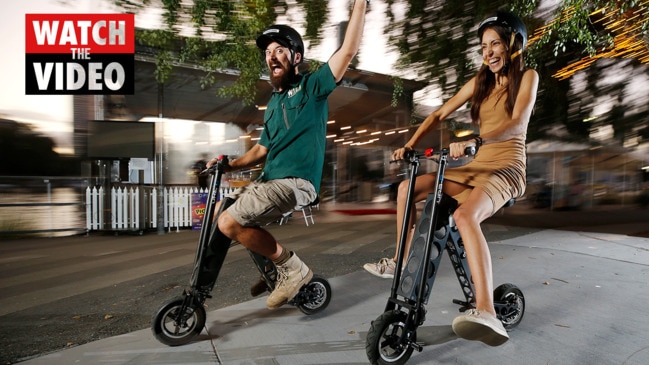
- Taxis and Uber go head-to-head
- Taxi drivers stage Uber protest
- World’s largest bike sharing platform comes to Adelaide
- Clogging public racks, abandoned bikes and tripping hazards
WAKE up in a house you rent to strangers, commute to work on a bike you do not own and hitch a ride in the back seat of a random person’s car — all using a mobile application.
Welcome to a day in the sharing economy, where nothing — and yet everything — is yours.
It is a market driven by digital disruptors, such as Airbnb and Uber, and it is changing how city dwellers travel, eat and sleep.
The “on-demand” economy is providing a new level of freedom for consumers, who can have what they want, when they want it, at the touch of a button.
But the increasingly democratised marketplace is posing headaches for regulators, and for traditional businesses that claim the upstart start-ups are living — and thriving — under their own set of rules.
The term sharing economy was added to the Oxford Dictionary in 2015, and is broadly applied to internet-based services that enable the sharing of an asset or service between two parties.
The most recent — and recognisable — addition to the Adelaide market is bike-share schemes. Overseas operators ofo and oBike launched in the CDB in October last year under an agreement with Adelaide City Council.
The bikes, which are fitted with GPS tracking, are dockless, meaning they do not have to be returned to a designated location — as is customary with traditional bike hire.
The freedom is among the service’s main attractions, but it exposes the bikes to vandalism and neglect. (Who has not seen one of those bright yellow bikes lying on the footpath or wedged in a tree?)
The City Council received 18 complaints about share bikes in the six weeks after they rolled into town, including one about a vision-impaired women falling over a stray bike.
ofo’s city manager for Adelaide, Alex Hender, told The City that trust was a must in the sharing economy, but stressed it was vandals, not users, who were responsible for the mistreatment.
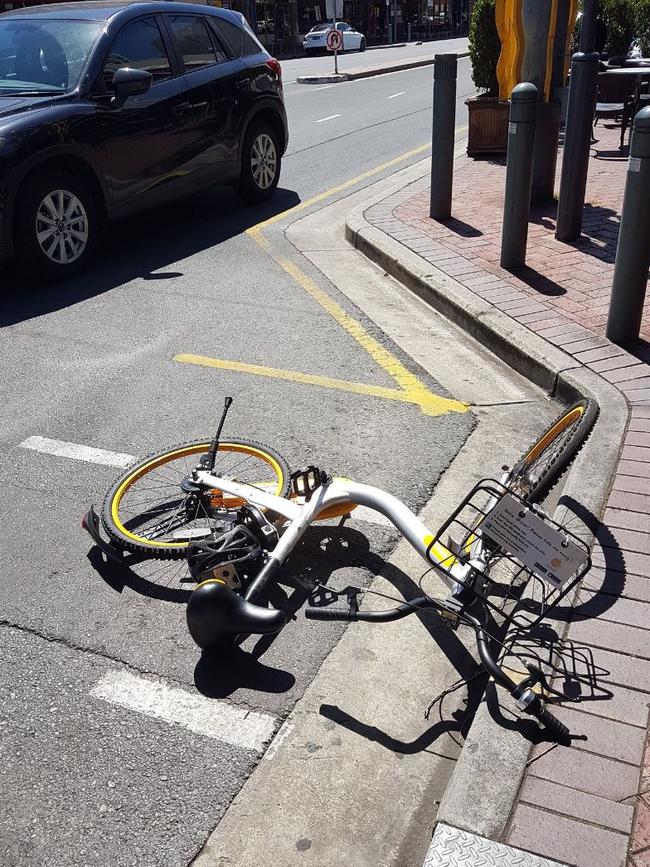
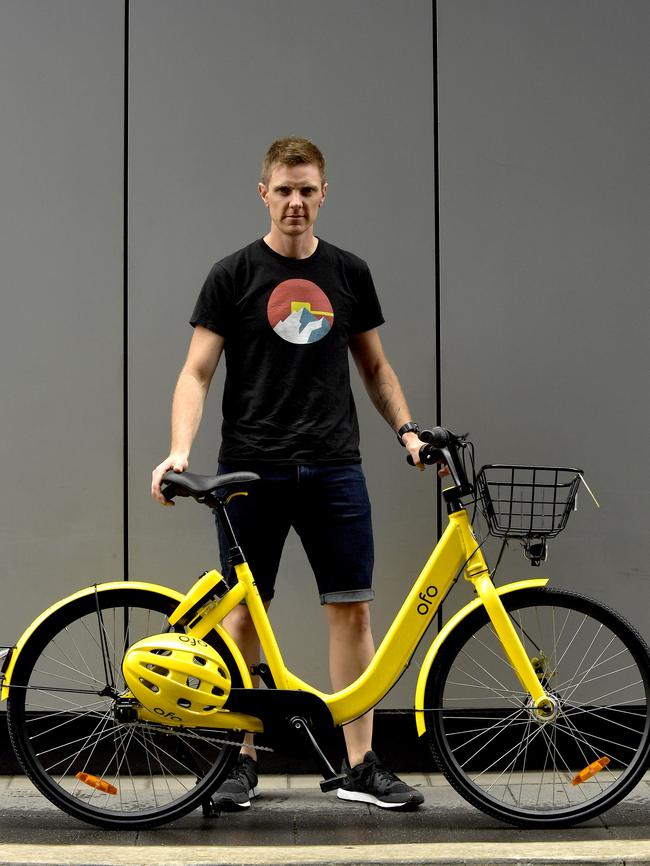
“The riders are very, very respectful,” Mr Hender said.
“If you ride the bike and you get off, then you are grateful that you had it and you’re not going to stick it in a tree.”
When they are abandoned, a crew of ofo “rebalancers” are on hand to return the bikes to high-demand locations, such as Rundle Mall, Central Market and North Tce.
Mr Hender said the operator did not track data on individual trips or users, but anecdotal evidence suggested the bikes were being mostly used for short journeys by tourists and city workers.
He said the Beijing-born company — which recently chalked up 20,000 trips in Adelaide — was in talks with a number of metropolitan councils as it looks to create a citywide network for commuters.
“It is a dramatic shift … in that people feel like (a bike) is a service, rather than a product,” he said.
“It is a piece of transport equipment … not everyone wants to share, but most people do.”
The bike share model is based on the idea that people might need a bike at some point in time — just not all the time.
The same principle underpins Spacer and Parkhound, online marketplaces for storage space and carparks respectively.
Spacer founder Michael Rosenbaum said the business model was based on “maximising an asset that you don’t need for most of the time”.
“With higher density, we have rapidly changing living space that we are moving into — but we still need it (storage space),” Mr Rosenbaum said.
“People do not need their car for 95 per cent of the time, for instance.”
The sharing of bikes, carparks and garages might be one thing. The sharing of our most prized asset — a home — is another.
Airbnb has been a mainstay of the peer-to-peer economy since it launched in 2008.
The service has 4 million homes available for rent worldwide, including 122,000 in Australia — up from just 15,000 four years ago.
The group’s manager for Australia and New Zealand, Sam McDonagh, said that listings in SA had jumped 50 per cent in the past 12 months, to 5300.
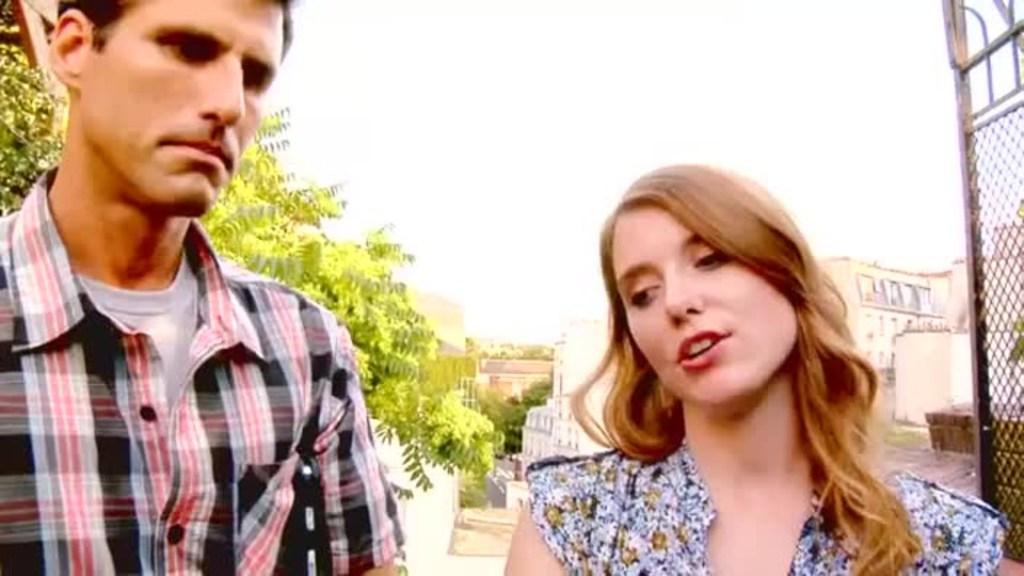
Mr McDonagh said Adelaide was an ideal Airbnb city, in part because of State Government regulations which mean hosts do not need to obtain council approval to rent their home.
Those rules, which the service lobbied the government to introduce in 2016, have angered the hotel industry.
Australian Hotels Association SA general manager Ian Horne this week said Airbnb was a “destructive concept”.
“Our position is that we have never been against mums and dads, the empty-nesters who are renting out their teenagers’ room,” Mr Horne said.
“It is the organisations, or the individuals, that purchase property and run it like a hotel but without having to think about things like disability access, or fire alarms.
“That is the ugly side of it.”
Mr Horne accused the service of “not employing a single worker” or “building a single hotel”, as he challenged claims the share economy provided cheaper products and services than those offered by bricks-and-mortar businesses.
Mr McDonagh said concerns from hoteliers were unfounded.
“I think we can very happily coexist,” he said.
“To see the growth that Airbnb has had (and) at the same time the hotels have been doing the best business in decades.
“Airbnb is growing the overall tourism pie.”
The friction between new-age and traditional operators is also being played out in our streets.
The taxi industry fought hard to block ridesharing service Uber from being allowed to legally operate in SA, fearing it would reduce weekly takings and devalue their licences
Tensions erupted in August last year when cabbies protested outside Adelaide Airport after Uber drivers were granted permission to collect passengers outside the terminal.
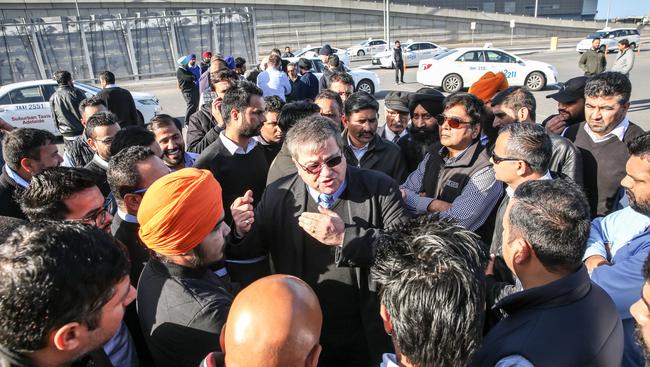
An Uber spokesman this week said Adelaide had “embraced” ridesharing, with more than 200,000 people using the service.
“Ridesharing has helped make our cities more liveable, better connected and more economically viable,” the spokesman said.
“It is creating economic opportunities, supporting and complementing the public transport networks and opening up communities traditionally undeserved by transport.”
Consumers will ultimately decide where the sharing economy goes from here, but businesses that don’t want to share nicely risk losing their slice of the pie altogether.
